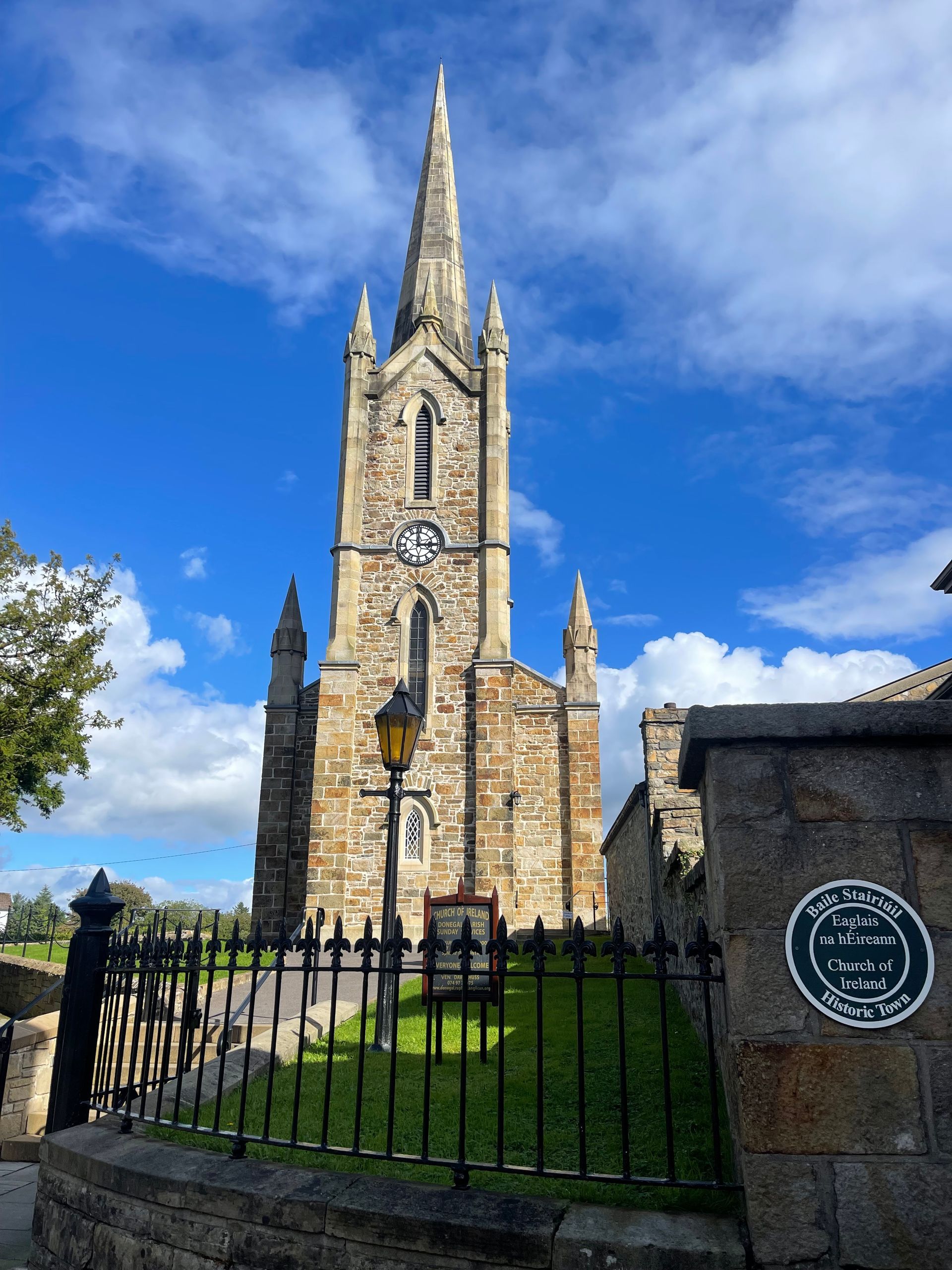Heritage Discovery Made Easy: A Friendly Guide to Exploring Your Genealogy
Allstop Travel
Let's dive into Heritage Travel.

Allstop Travel offers both tours we have crafted and tours through such Suppliers as Kensington Tours for your Heritage Journey's.
Having met cousins in Ireland, England and Scotland I personally have found it to be life changing. To share the cultures of my Ancestors and talk with those who's branch of the tree is so different, yet the same.
We look forward to helping you discover your heritage. Here are a few helpful thoughts on how and where to start.
Uncovering Your Family History
Delving into family history can feel like piecing together a captivating puzzle. It involves tracing lineages, understanding cultural backgrounds, and uncovering stories long forgotten. Whether you’re a curious beginner or a seasoned genealogist, starting with the basics is essential to your journey.
Begin Your Genealogy Journey *Starting your genealogy journey*
can seem overwhelming but breaking it into manageable steps will simplify the process. Begin by gathering information from family members. Conversations with relatives can provide anecdotes and details not found in records.
1. **Interview family members.** Ask about names, dates, and places. 2. **Collect documents.** Look for birth certificates, marriage licenses, and obituaries. 3. **Note oral histories.** These stories can guide you to resources or archives. Consider using free guides like [Ancestry's Free Research Guides] to develop a structured approach. As you collect data, remember to document sources meticulously for future reference.
Creating Your Family Tree Building a *family tree*
is like sketching a map of your heritage. Start with what you know—your immediate family—and expand outward. There are numerous online platforms to assist you, including Ancestry.com and FamilySearch. - **Use online tools. ** Digital platforms offer templates and storage for your tree. - **Verify information.** Cross-check details from multiple sources. - **Add photos and stories.** Personalize your tree with mementos and narratives. Visualizing your lineage can uncover connections and patterns, making your genealogical research both rewarding and insightful.
Using Historical Records **Historical records**
are vital in genealogy. They provide factual details that shape your family’s narrative. Start by accessing census data, military records, and immigration documents. These records can reveal occupations, addresses, and family structures. - **Census records** show household members and their ages. - **Military records** may include physical descriptions and enlistment details. - **Immigration documents** can trace your ancestors' journeys to new lands. Online databases, like those available through [The National Archives], offer extensive collections of these historical records.
Exploring DNA Ancestry DNA ancestry
tests have revolutionized genealogy, offering a scientific approach to understanding one's origins. These tests can confirm paper trails and uncover new familial connections. Understanding how to interpret your results is essential to this aspect of heritage discovery.
Understanding your genetic roots
involves interpreting the data from DNA tests. Companies like 23andMe and AncestryDNA provide insights into geographical origins and potential relatives. This *genetic genealogy* adds another layer to your family history. - **Ethnicity estimates** can highlight regional ancestry. - **DNA matches** might reveal unknown relatives. - **Health markers** may offer insights into familial health trends. For more information on genetic genealogy, you can refer to [The Family History Guide's section on DNA]
Interpreting DNA results
requires understanding complex data. Focus on ethnicity estimates and DNA matches but remember these are just pieces of the puzzle. They need to be combined with traditional research for a complete picture. 1. **Review ethnicity estimates. ** Consider how they align with known family history. 2. **Contact DNA matches. ** Communication can lead to new discoveries. 3. **Update your family tree.** Incorporate new insights from DNA data. For a comprehensive guide, [The Everything DNA Book] is a great resource for beginners.
Ancestor research is the heart of genealogy.
It's about diving deeper into the stories of those who came before us. This section focuses on tracing your heritage and connecting with living relatives.
Heritage Discovery **Tracing your heritage**
involves following clues left by ancestors. Utilize records, stories, and DNA matches to map out your lineage. Visit local archives or historical societies to uncover hidden gems. - **Research local archives.** They may hold unique documents. - **Explore historical societies.** These can provide context and detail. - **Visit ancestral locations.** Walking where your ancestors walked can be profound. Combining these approaches ensures a holistic understanding of your family's past.
Connecting With Relatives living accounts and personal documents that enrich your family history. Consider reaching out to distant cousins or joining family reunions. - **Use social media. ** Platforms like Facebook can connect you with relatives. - **Attend family events.** Reunions are perfect for gathering information. - **Share your findings. ** Encourage others to contribute their knowledge. Building these relationships can open doors to new information and strengthen familial bonds.

If you love culinary adventures paired with world-class wine, local craft beers, and unforgettable Black Hills charm, mark your calendar for the 13th Annual Forks, Corks & Kegs Food, Wine & Beer Festival in Deadwood, happening April 10–11, 2026. What Makes Forks, Corks & Kegs a Must-Attend Event This two-day culinary celebration brings together: Local chefs and restaurants serving their signature dishes Wine tastings from vineyards across the country Craft beer selections — including regional favorites A Grand Tasting experience featuring dozens of beverages and light hors d’oeuvres all in one place. Whether you’re a seasoned wine aficionado or eager to explore new food pairings, this festival blends historic Deadwood’s lively atmosphere with refined tastes — the perfect spring getaway for food and drink lovers. Festival Highlights Friday, April 10 — Wine Around & Appetizer Crawl Kick off the weekend by strolling historic Deadwood as each participating restaurant hosts a different wine pairing and bite-sized culinary creation. It’s a great way to meet chefs, try new flavors, and warm up your taste buds for the big day ahead. Saturday, April 11 — Deadwood Dine Around & Grand Tasting Spend your Saturday discovering even more food and beverage pairings at local venues. In the afternoon, the Grand Tasting brings dozens of beers and wines together under one roof — a can’t-miss experience for connoisseurs and casual tasters alike. Pro tip: All festival access requires registration at Deadwood Mountain Grand, and tickets include a festival guide, commemorative glass, and access to special events across the weekend. VIP Access & Extras For those who want an elevated experience, VIP tickets offer early entry to exclusive wine tastings and priority access to select areas. It’s a great option for guests who want a more curated sipping experience. Visit Deadwood This Spring April is a magical time to visit Deadwood — the Black Hills begin to bloom and the historic streets come alive with food, music, and local culture. Pair your festival weekend with a stay at one of Deadwood’s charming hotels, explore local shops on Main Street, or extend your trip with nearby hiking, casinos and attractions. Whether you’re planning a getaway with friends or looking for a flavorful experience to kick off the season, Forks, Corks & Kegs 2026 promises unforgettable tastes, great company, and a true Black Hills celebration. Going with friends? Even better. Allstop Travel has group-friendly hotel rates and preferred locations available for Forks, Corks & Kegs 2026. Spots are limited, and Deadwood fills fast for this event. Reserve your stay with Allstop Travel before the best options are gone. 📞 (701) 419-4440

ND Country Fest is more than just great music—it’s your chance to explore North Dakota like never before. With Allstop Travel’s exclusive travel packages for festivals, you’ll enjoy smooth festival transportation options and curated travel itineraries designed around your passion for country music travel. Get ready to connect with fellow fans, experience local culture, and make the most of every moment in a safe, family-friendly setting. Keep reading to see how to turn this festival into an unforgettable adventure. For more about North Dakota's adventurous offerings, take a look at this link.




